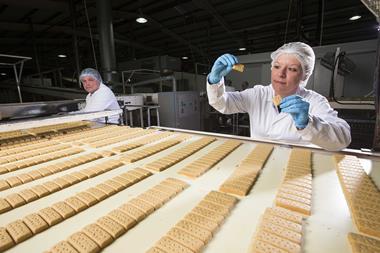The Food Standards Agency (FSA) has issued new guidelines to producers to reduce the presence of opium in poppy seeds.
These offer a code of practise to prevent and reduce presence of opium alkaloids in poppy seeds, which are included in many bakery products. This is instead of government-led legislation, which could affect the way the UK poppy industry worked.
This follows some reports of ‘morphine-like’ effects in some consumers after they had eaten poppy seeds.
The FSA stated that poppy seeds do not naturally contain opium alkaloids; however, they can become contaminated with alkaloids as a result of damage during harvesting.
An FSA spokesperson said: “The European Commission, together with Member States (including the UK), has developed a Code of Good Practice to reduce the presence of opium alkaloids in poppy seeds, and therefore minimise any potential risk to consumers.
“It recommends all Member States to take necessary measures so that the good practices are implemented by all operators involved in the poppy seed production and processing.
“There are very few reports of adverse effects arising from the traditional consumption of poppy seeds, but morphine-like effects have been observed in humans following consumption of food containing opium alkaloid-contaminated poppy seeds.”
In 2011, the European Food Safety Authority said that consumers of foods containing large amounts of poppy seeds are likely to exceed the health based guidance value, and concluded that consumption of food containing poppy seeds could represent a health concern for some consumers.



































No comments yet